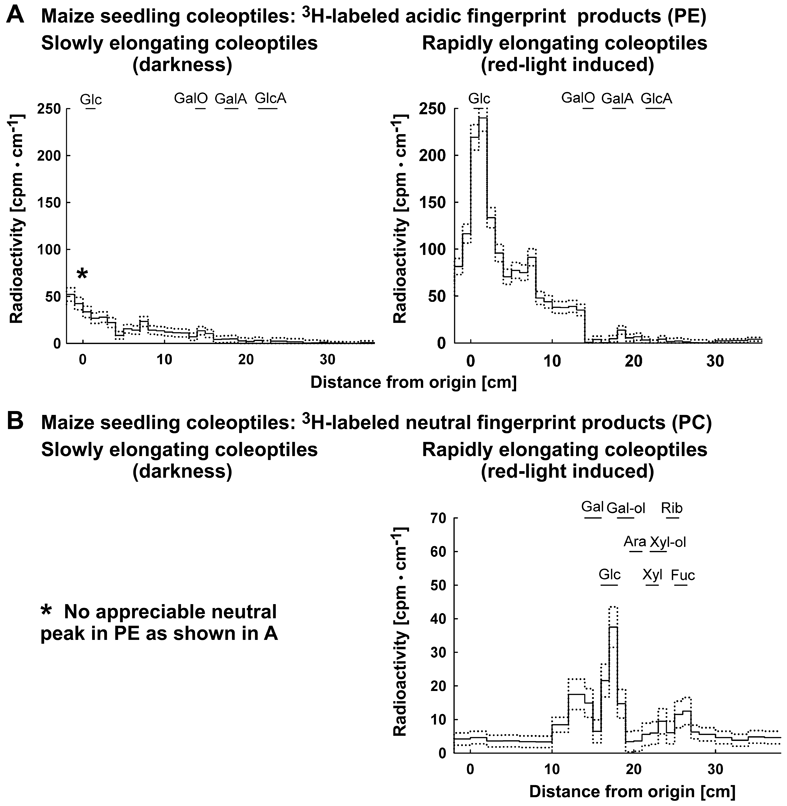Plant Physiology 150: 1855-1865 (2009)
In vivo cell wall loosening by hydroxyl radicals during cress (Lepidium sativum L.) seed germination and elongation growth [W][OA]
The Edingburgh Cell Wall Group, Institute of Molecular Plant Sciences, The University of Edinburgh, The King's Buildings, Mayfield Road, Edinburgh EH9 3JH, United Kingdom (R.A.M.V., S.C.F.)
Commissariat à l'Energie Atomique (CEA), iBiTecS, CNRS URA 2096, Service de Bioénergétique, Biologie Structurale et Mécanisme, 91191 Gif-sur-Yvette Cedex, France (A.K.-L.)
Received April 9, 2009; accepted May 29, 2009; published June 3, 2009
www.plantphysiol.org/cgi/doi/10.1104/pp.109.139204

Figure 6. Detection of in vivo •OH attack on maize seedling coleoptile cell walls by 3H-fingerprinting during elongation growth. (A) Representative 3H-fingerprint of labeled products from segments of slowly and rapidly elongating coleoptiles. Signal intensity in the scintillation count, that is 3H-labeling of former oxo groups, is plotted against distance from the origin after high-voltage paper electrophoresis (PE) at pH 3.5. Only the rapidly elongating coleoptiles showed an appreciable neutral peak (co-migrating with glucose), which was eluted and re-run by paper chromatography (PC). (B) Representative 3H-fingerprint of labeled neutral products from segments of rapidly elongating coleoptiles. The sample was eluted from the fraction that co-migrated with glucose during PE and re-run on PC. For abbreviations of acidic and neutral markers see Fig. 3.
| Article in PDF format (1.7 MB) |
|
|
|
The Seed Biology Place |
Webdesign Gerhard Leubner 2000 |